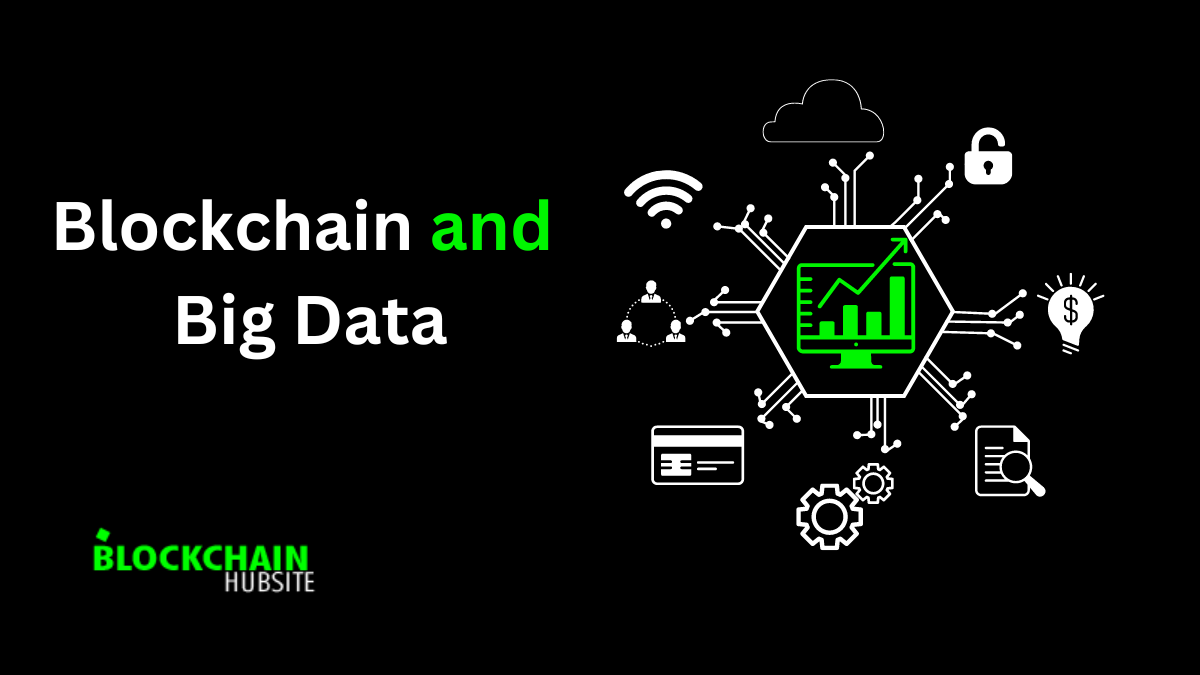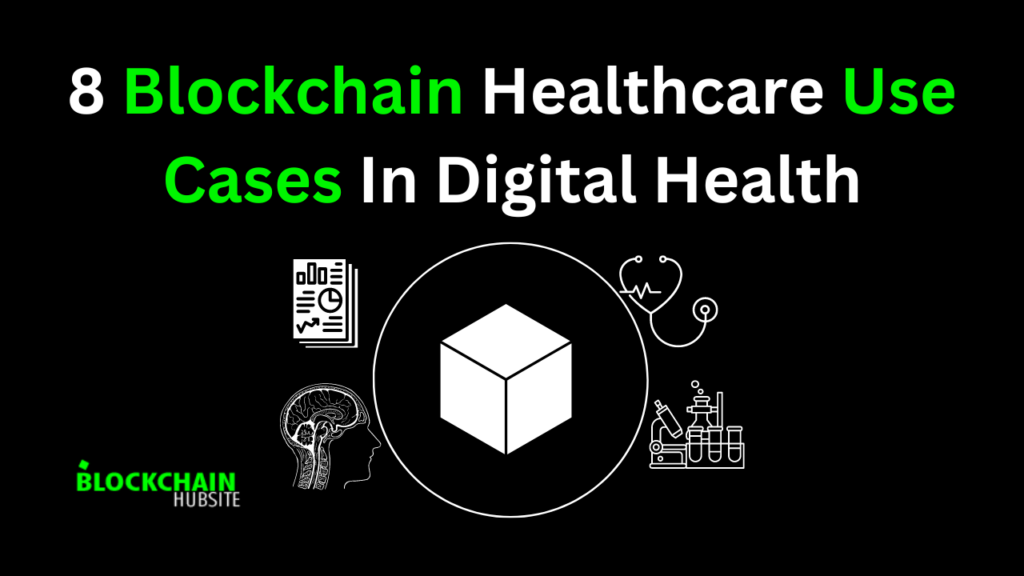
Table of Contents
Introduction
Blockchain and big data are two emerging technologies high on the organization’s list of top priorities. They will likely significantly alter how the business and the organization are operated.
Over the past few years, there has been a lot of interest in big data across various scientific and engineering fields.
Although big data has many benefits and uses, several issues still need to be resolved for a higher level of service, such as big data analytics, big data management, and big data privacy and security. Due to its decentralization and security, blockchain can improve big data services and apps.
The term “blockchain” refers to a time-stamped collection of data monitored by several computers, especially those not owned by any entity. In terms of security, it is said that cryptographic techniques protect each data block. On the other hand, big data describes the types of data sets that are inherently too complex for the tools used for traditional data processing. What possible results could arise from integrating these two innovations?
Blockchain technology can become a new component of the Big Data ecosystem of tools. It can be extremely important for security in user authentication, limiting access depending on a user’s requirements, tracking data access histories, and effective data encryption.
What is Blockchain?

The word “blockchain,” which comes from the words “block” and “chain,” refers to a list of digital records that keeps growing and is made up of packets, or “blocks,” that are linked together and kept safe by cryptographic mechanisms. The blocks of data digitally recorded and maintained in a chain-like structure are known as the blockchain. Each block in the linear chain contains multiple pieces of data, such as a Bitcoin transaction.
What is Big Data?

Big Data is a collection of data that is enormous in volume and is expanding exponentially over time. No typical data management systems can store or analyze this data effectively due to its scale and complexity. Big data is just data, except it’s really large.
Blockchain and Big Data: Two Characters of the Same Story

In 2028, the market for big data is projected to be worth USD 549.73 billion. In contrast, the market for blockchain technology is expected to grow to US$163.83 billion by 2029.
You can see that both big data and blockchain are experiencing rapid growth and development. One of the most important reasons is that they make a lot of data. This explains why there is such a strong connection between the two businesses.
Data recording and validation are the foundation of blockchain. In contrast, data science uses a large amount of data to make predictions and examine the data for helpful information. Big Data alters how transactions function, while blockchain alters how data is kept.
So, the same story has two characters!
Bringing Blockchain and Big Data Together
Big data and blockchain technology could create a variety of exciting opportunities. Blockchain can be useful for managing big data, particularly data analytics, in various ways. The quality of the data is where this technology has the most potential. This means that the data recorded and verified by big companies on the blockchain will be much more useful to companies.
If there is a “sweet spot” for blockchain, it is probably possible to transform questions and insights into assets. The integrity of the data you view will be more secure, thanks to blockchains.
The reason for Big Data and Blockchain’s successful collaboration is that the blockchain quickly addressed big data problems. For instance, decentralization, transparency, and immutability.

Blockchain And Big Data To Secure Data

Big Data and blockchain technologies work together to protect data from potential leaks. Even the highest-ranking executives need access to the information since it is held in blocks or channels, even with the various network permissions needed to access massive data. So, from the point of view of cyber criminals, it becomes very hard and challenging to steal.
This is because blockchain divides large amounts of data or information into a limited number of chunks and distributes them over the whole computer network instead of uploading them to a database server or a cloud server. This eliminates the need for an intermediary or third party to complete a transaction.
Hence, it is claimed that decentralization is achieved or ensured by an immutable ledger rather than putting faith in a service provider. Furthermore, the blockchain is said to contain huge amounts of encrypted data. Hence, it is referred to as being extremely secure.
Blockchain And Big Data Technologies For Data Analysis
Blockchain is a digital, decentralized public ledger that keeps track of transactions between various devices connected by a peer-to-peer network. Although initially created for Bitcoin-related cryptocurrency assets, it is now utilized for various other things.
For several years now, data analytics has been helping many businesses. Predictive analytics is one type of data analysis that will undoubtedly transform and alter the market. Predictive analytics is focused on making predictions about events using machine learning techniques and vast historical data.
Regarding future applications, blockchain analytics are very useful in the marketing field, namely in digital marketing. Using information gathered from market realities, even digital marketers can plan future marketing advertising.
Blockchain For Private Big Data Management
One of the primary ways blockchain differentiates itself from the traditional types of mechanisms widely used today is by enabling private big data management. According to reports, the blockchain’s network layer requires no identities.
This means the technology is initiated for use without needing the user’s name, email address, address, or other personal information.
In other words, no third-party or central server is required or necessary to store the users’ information. This makes blockchain technology significantly more secure than a centralized server, which may be easily compromised and expose its users’ most sensitive data to risk. But, blockchain specifically improves the transparency of data analysis.
This is built so that if an entry or transaction is not claimed to have been verified, it is automatically denied. Thus, it is claimed that the big data kept in the blockchain is both highly and completely transparent.
Confidentiality, Data Integrity, And Authentication

Data confidentiality, data integrity, and data authentication are examined as security challenges in blockchain for big data management.
Data Confidentiality
This refers to the process of hiding data. It is done to hide the data so that only the intended receivers can see the data or information provided by the source. Data confidentiality is achieved using industry-available data encryption technologies and key pair models.
Data Integrity
This procedure guarantees that all means are used to convey the data from the source machine or user to the receiving device or user.
The data may be altered while being sent from the source machine or user to the receiving device or user. Today, it is believed that data integrity is carried out through a fingerprinting technique so that the recipient device or user may confirm that the data or information has not been altered.
Data Authentication
Data authentication refers to ensuring the data supplier is clearly the data provider. Thus, the data provider should be verified such that the source computer or a sender pretending to be the source computer cannot fake the communication.
Security Management Scenario for User Big Data in Blockchain

Users of the blockchain environment manage their security keys. Many cryptographic techniques are used to generate the security keys, which are then given to blockchain users. In addition to creating security keys for blockchain users, it is claimed that credentials are also created for outside parties to access data with strict access controls. After that, both credentials and security keys are translated to the blockchain environment to ensure that the rules set forth by the end-user about data storage and access are met consistently.
The devices then store information in the blockchain using the security keys. Ultimately, end users feed the blockchain with particular and relevant information, after which the smart contract is applied by applying restrictions based on the security factor related to each blockchain user to store and retrieve data. On the other hand, a third party who requests permission from the relevant end user to use private data may also have access to the data recorded in the blockchain.
Use case: Blockchain and Big Data
Use case 1: Finance
The financial industry as a whole and banks specifically are among the first to start utilizing new technologies. Businesses use big data analytics, especially security, to spot fraud trends. By implementing blockchain, businesses can replace their current business model with a safer, more open one where financial fraud is impossible. Instead, they will need to gather a lot of transaction and customer data.
Use case 2: Healthcare
Blockchain and Big Data together have the potential to fundamentally alter the healthcare system. Doctors, hospitals, scientists, and researchers gather millions of bits of data daily. A wide range of problems, from saving lives to cutting expenses, might be addressed by manipulating this enormous volume of data. Once all of this data has been gathered, medical professionals can diagnose patients and diseases and make far more informed judgments. This would enhance the patient experience and offer a more competent, comprehensive treatment than is currently offered.
Use case 3: Industrial Production
The digital revolution has entirely revolutionized the manufacturing and production industries, but they can still advance with the help of this new technological combination. Companies in this area can increase operational efficiency and reveal insights that promote productivity and profits by utilizing secure data collection via blockchain and the predicted and statistical analysis of Big Data. Predictive analytics, for instance, can forecast machine problems, increase machine use, and competently plan tool maintenance.
Big Data Analytics

Big Data Analytics is a method of analyzing large data sets to derive some important insights that can be applied to a variety of business applications or to improve everyday lifestyles. This method combines Big Data with several other elements, including statistics, artificial intelligence, data mining, deep learning, and prediction mechanisms.
Applications of Blockchain Technology with Big Data Analytics
Blockchain is the modern method for transferring money or logging directly into information in today’s technologies. Due to the problems in the traditional banking system, the blockchain was created in the new era of advanced computers.
Here are a few applications of blockchain technology in combination with big data analytics.
Cyber Security
The blockchain system is widely used in many aspects of our daily lives, from banking to healthcare. In addition, blockchain technology has increased awareness of the cybersecurity sector, with plans to increase this awareness even more soon. So, by greatly reducing the amount of human effort required for data storage, blockchain technology greatly reduces the danger of human error, which is the primary reason for data theft.
The success of this blockchain technology is because every type of digital transaction is supposedly recorded in the blockchain, and the industry-specific details still need to be the primary focus. Also, the risk of data theft can be greatly reduced by implementing blockchain technology in all types of industries; as a result, the type and volume of data remain private and secure.
Supply Chain Monitoring
Blockchain is also particularly user-friendly when managing the organization’s supply networks. Institutions and businesses should be able to quickly identify supply chain inefficiencies and locate products in real time by doing away with paper-based trials. Additionally, blockchain technology would enable institutions and organizations to monitor how goods or services were delivered from a quality control perspective from the point of origin to the destination.
The likelihood of using blockchain technology in big-data supply chain solutions is that it will track the status of the items while they are being transported. Here, it is discovered that all users have real-time access to data relevant to every consumer or user. Verifying product label claims and product origins continues to be one of the advantages of supply chain monitoring. The likelihood of delivering human rights and fair compensation remains one of the most vital issues.
By supplying more data—in the millions or trillions—about the location and quality of the products as they are transported around the world, blockchain, for instance, enables banks, financial institutions, and businesses to start end-to-end visibility of their supply chain over the long term.
In a report on the state of supply chains in 2016, Deloitte and MHI surveyed 99 of the top supply chain organizations and found that roughly 44% of the participants used sensors. Almost 87% of these institutions plan to adopt this technology by 2020. Moreover, blockchain technology manages controls, protects, and transmits this smart information.
Financial AI Systems
Blockchain technology combined with big data is expected to play a significant role in financial transactions in the future. Also, it has been discovered that big data, blockchain, and financial transactions work harmoniously to deliver the goods and services needed by the financial services sector. This is because current financial systems are time- and money-intensive and complex, resulting in incorrect information. In addition, third parties or intermediaries are necessary to carry out the procedure so that any problems can be settled quickly.
Depending on the type and volume of data, this leads to higher costs, stress levels, time stamps, and financial losses. As a result, several banking and financial industries have begun utilizing blockchain technology to provide innovations like smart contracts, smart bonds, and other similar concepts.
Medical Records
Records in the field of medicine are particularly crucial and must thus be continuously examined. When the big data systems that enter this data-oriented sector are developed using blockchain technology, all records are said to be hidden with a clear track record and preserved with a better rate of transparency.
Anti Money Laundering
Smart contractors or regulators can modernize the reporting process to increase transparency thanks to the blockchain system and its digital ledger. Furthermore, the distributed and immutable digital ledge makes changeless transaction history possible.
The digital ledger is important for storing big data to conduct large transactions. It might operate with a responsibility far beyond risk officers within financial institutions by implementing anti-money laundering.
Blockchains enable static and dynamic record storage for the corresponding transactions, while cryptocurrencies guarantee users worldwide instant, secure, and money. Traditionally, the supply of money and the transfer of payments were stated to be carried out without tampering. Still, only the use of central authority was necessary. On the other hand, the peer-to-peer ecosystem created by blockchain mechanisms prevents this money transmission technique by offering a third-party environment for ensuring payment transfers.
Modern company infrastructure is decentralized to achieve anti-money laundering using advanced identity management and encryption-based mechanisms. Moreover, identity management based on digital signatures helps the banking and financial industries deal with the constantly evolving know-your-customer (KYC) and customer due diligence (CDD) standards. The costs associated with strong KYC are also shown to be decreased, and lastly, financial crimes and consent violations may be minimized in the long term.
Smart contracts and the usage of blockchain for big data have begun to transform the traditional lending industry in recent years. Traditional money lenders, for example, provide borrowers with the necessary loans while immediately imposing a higher interest rate on the acquired bank loan and attesting their property in the form of security. As a result, more debtors have started going bankrupt and losing their homes and other assets.
This is weakened by the development and adoption of blockchain technology since it does not require a third party to lend the necessary funds or assets as security. So, the introduction of blockchain eliminates the requirement to disclose credit history. The borrower is not required to provide their credit or employment history, and the manual processing of several documents has also been shortened.
Conclusion
Over the past few years, big data has greatly increased interest in the scientific community. With blockchain’s decentralized feature, there is great potential for growth and improvement of services. It has been discovered that combining blockchain and big data will deliver real-time data analytics, allowing financial institutions to settle transactions quickly. It is clear from the in-depth analysis that dedicated credit procedures are required further to strengthen the system’s credibility for data-level storage activities.
FAQs
1. Is blockchain related to Big Data?
Yes, blockchain is related to Big Data because it develops a distributed ledger that records and saves massive amounts of information securely and transparently, allowing it to be analyzed and used for various purposes.
2. Do big companies use blockchain?
Yes, many large organizations utilize blockchain technology for various tasks, including identity verification, financial services, and supply chain management.
3. Which is best blockchain or big data?
Comparing blockchain and big data is impossible because they are different technologies with different applications. Big data analyze massive amounts of information to acquire insights and make data-driven decisions, whereas blockchain offers a secure and transparent method of storing and exchanging data. Each technology has unique benefits and uses.
4. What kind of data Cannot be stored in blockchain?
Due to limited storage space and higher transaction fees, blockchain is inappropriate for storing large digital items such as photos, videos, or audio recordings.
5. Is blockchain useful for data analytics?
Yes, blockchain can be valuable for data analytics since it provides a secure and transparent way of storing and exchanging data, which can be analyzed for various applications, including fraud detection, supply chain management, and financial services.
6. Why use blockchain instead of a database?
Blockchain is advantageous over traditional databases in terms of high security, decentralization, transparency, and trust, making it helpful when these properties are required.
7. Can blockchain replace traditional databases?
No, blockchain cannot completely replace traditional databases because the two technologies serve different functions and have distinct advantages and disadvantages.




